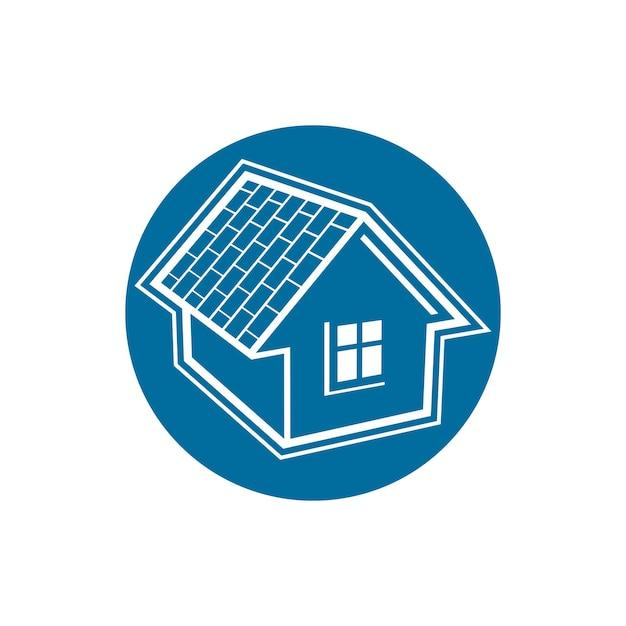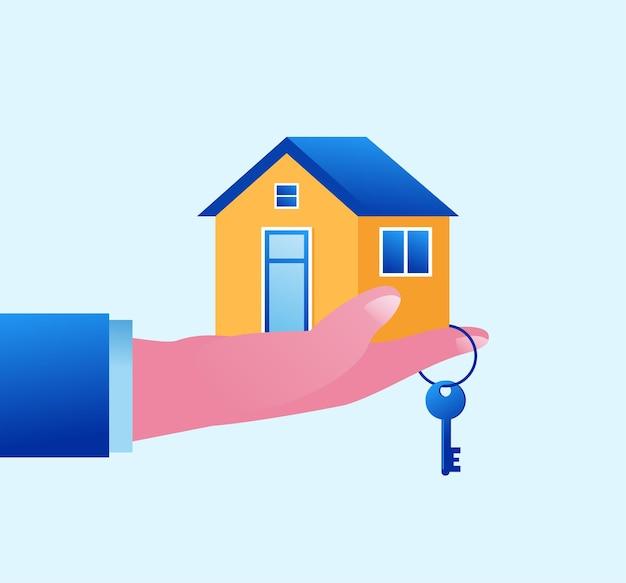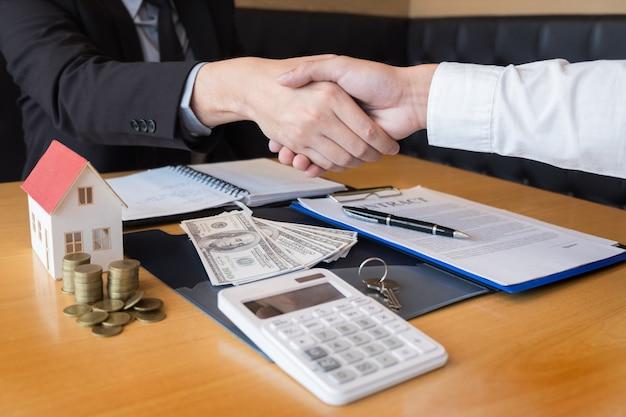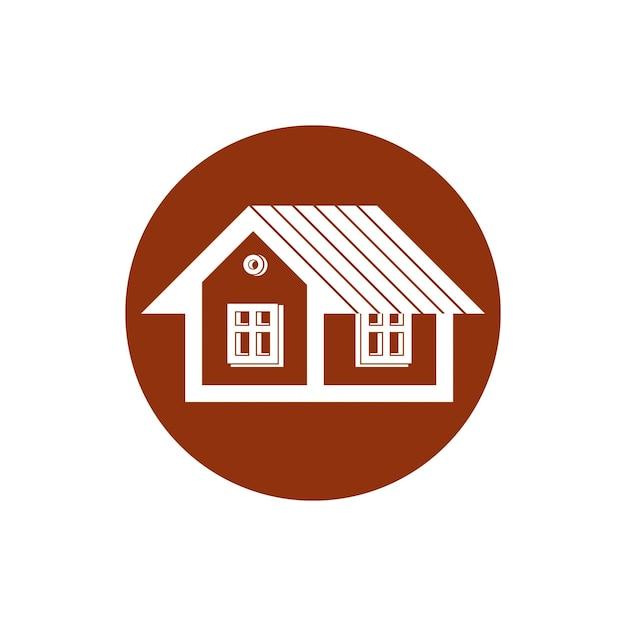Are you thinking of selling your house to a developer? Maybe you’re looking to downsize, cash in on the equity, or your home needs too much work and maintenance. Whatever your reasons are, selling to a developer can be an excellent option. But where do you start? How do you get their attention, and what can you expect throughout the process?
In this blog post, we’ll give you a step-by-step guide on how to get a developer to buy your house. We’ll also answer some of the most common questions homeowners have when it comes to selling their property to developers, such as “Can a developer force you to sell?” and “Is it better to sell to a developer?”
But before we dive in, let’s make sure your property is ready to sell. We’ll take you through the process of getting your house prepared and determining its value. We’ll also discuss how developers make money from property and give you tips on negotiating a fair deal.
If you’re considering selling your house to a developer, keep reading. This guide will help you understand the process, get the best deal for your property, and make the most out of this opportunity.
Key Strategies for Attracting Developers to Buy Your House
Are you looking to sell your home to a developer? If yes, then you need to know what developers are looking for in a property. Here are some tips for making your home attractive to developers.
Location Matters
One of the first things that developers look for in a property is a great location. As a homeowner, you can’t do much to change the location of your property, but you can point out the advantages of its location. For example, you can highlight its proximity to essential amenities such as schools, hospitals, shopping centers, and public transportation.
Good Condition of the Property
Another important factor that developers consider when buying a property is the condition of the property. Generally, developers look for a property in good condition, which requires minimal repairs. Thus, before showing your property to a developer, ensure that it is in excellent condition. Consider repainting the walls, fixing broken windows, and repairing any water damage, among other essential repairs.
Offer Competitive Pricing
As a homeowner who wants to sell their home to a developer, you should be willing to negotiate the price. Developers are more likely to buy your house if you offer a competitive price. Consider researching the local market to determine the average selling price of properties in your area. Offering a fair price will attract developers and increase the chances of selling your home.
Provide the Relevant Documents
Developers are always keen to get the relevant paperwork and documentation necessary for their development. Therefore, as a homeowner, you should provide them with the necessary documents such as land registry documents, planning permission, and building regulations consent, among others. Having these documents at hand will make the process of selling your property much more comfortable.
In conclusion, selling your property to a developer can be an easy and straightforward process if you follow these tips. Highlight the advantageous location, maintain good condition of the property, offer a competitive price, and provide relevant documents. By doing this, you can make your home attractive to developers and increase your chances of selling it quickly.
Can a Developer Force You to Sell
Many homeowners may wonder if a developer can force them to sell their property. The answer? It depends on the situation.
Eminent Domain
In some cases, a developer may be able to force a homeowner to sell their property through eminent domain. This is when the government takes private property for public use, such as building a new highway or park. While this is legal, homeowners are required to receive fair compensation for their property.
Contractual Obligations
If a homeowner has entered into a contract with a developer to sell their property, the developer may be able to enforce the contract and require the homeowner to sell. However, any contractual obligations must be in writing and agreed upon by both parties.
Zoning Laws
Zoning laws can also come into play. If a homeowner’s property is rezoned for a specific use that requires their property, such as building a new school or hospital, the homeowner may be required to sell their property. However, they must receive fair compensation.
In summary, while a developer may be able to force a homeowner to sell their property in certain situations, such as through eminent domain or contractual obligations, the homeowner is entitled to fair compensation for their property. Therefore, it’s essential to know your rights as a homeowner and seek legal advice if needed before entering into any contracts or selling your property.
How do you value a teardown house
Valuing a teardown house can be a tricky business. When it comes to determining the worth of a property, there are several factors to consider.
Look at the Location
The location of the property is an essential factor. Houses located in coveted areas, such as those close to schools, shopping centers, and parks, are typically more expensive. If the teardown house is in a desirable location, it can fetch a higher price.
Determine the Property’s Condition
The condition of the property is also crucial to its valuation. A house that is in pristine condition will be worth more than one that requires significant repairs. If the property is run-down or in need of renovation, its value will be lower.
Check the Current Market Conditions
The current market conditions will also play a significant role in determining the value of a teardown house. In a seller’s market, the property will be worth more, while a buyer’s market will result in lower prices.
Take Note of the Lot Size
The size of the lot is another important factor in valuing a teardown house. A larger lot will be worth more than a smaller one, all things being equal. The lot’s shape, elevation, and topography are also important to consider.
Get a Professional Appraisal
To get an accurate value of a teardown house, it’s best to hire a professional appraiser who can assess the property’s worth based on its various factors.
Valuing a teardown house requires careful assessment of all its components. By considering its location, condition, current market conditions, lot size, and hiring a professional appraiser, you can arrive at a fair and accurate value for the property. With this information in hand, you’ll be better equipped to negotiate a fair price with a potential developer.
Is it Better to Sell to a Developer
As a homeowner who wants to sell their property quickly, you may be wondering whether it is better to sell to a developer or to a traditional buyer. While each option has its pros and cons, selling to a developer can be a great way to get a fair offer and close the deal fast. Here are some things to consider:
Advantages of Selling to a Developer
Faster Sales Process
One of the biggest advantages of selling to a developer is the speed of the sales process. Developers are in the business of buying and renovating properties, which means they have the experience and resources to make a quick offer and close the deal within a matter of weeks. This is ideal for homeowners who don’t want to wait months for their property to sell.
No Need to Clean or Renovate
Another benefit of selling to a developer is that you don’t have to worry about cleaning or renovating your property before selling it. Developers are interested in properties that are in need of repair or updating, so they won’t be put off by a property that is outdated or in need of a little TLC.
Guaranteed Offer
When you sell to a developer, you’ll receive a guaranteed offer for your property. This means you won’t have to worry about your buyer backing out of the deal or renegotiating the price at the last minute, which can happen with traditional buyers.
Disadvantages of Selling to a Developer
Lower Offer Price
One of the main disadvantages of selling to a developer is that you may receive a lower offer price than you would from a traditional buyer. Developers are in the business of making a profit, so they will be looking to buy your property at a price that allows them to make a profit on their investment.
Limited Negotiation
When you sell to a developer, you may have limited room for negotiation. Developers typically have a set price that they’re willing to pay for a property, and they may not be willing to budge much on that price.
Lack of Emotional Connection
Finally, selling to a developer means that you won’t be selling to someone who has an emotional connection to the property. While this may not matter much to some homeowners, others may find it difficult to sell their property to someone who doesn’t appreciate it the way they do.
In conclusion, selling to a developer can be a great option for homeowners who want to sell their property quickly and with minimal hassle. While there are some disadvantages to consider, the advantages of a fast, guaranteed sale can outweigh them for many sellers.
Should I Sell My House to a Developer
If you own a property, and you are considering selling it, you might be wondering if selling it to a developer is the right decision. There is no straightforward answer to this question, as it depends on various factors like why you want to sell, how much your property is worth, and your long-term goals. Here are some factors you should consider before selling your house to a developer:
Benefits of Selling to a Developer
- Quick closing: Developers often have cash in hand and are willing to close on a property quickly. If you need to sell your house fast, selling it to a developer can be a good option.
- No need for repairs: Developers are often willing to purchase the property as it is, so you don’t have to spend money on repairs or renovations.
- Higher offers: Developers often pay more for properties than traditional homebuyers because they can turn a profit by building and selling multiple homes on the property.
Risks of Selling to a Developer
- Loss of sentimental value: If your house has sentimental value, you might regret selling it to a developer. Think carefully about your reasons for selling and whether the financial gain is worth it.
- Impersonal transaction: Selling to a developer can feel impersonal since you are dealing with a business rather than an individual. You might not have the opportunity to negotiate or build a relationship with the buyer.
- Impact on the neighborhood: If the developer plans to build multiple properties on your land, it could potentially impact your neighborhood’s character, traffic, and infrastructure.
Alternatives to Selling to a Developer
- Sell on the market: If you’re not in a rush, you can list your house on the market and potentially get a better offer from a traditional homebuyer.
- Rent out the property: If you’re not ready to sell, consider renting out the property and generating income from it.
- Negotiate the deal: If you’re hesitant about selling to a developer, try to negotiate the terms and conditions of the sale. You might be able to work out a deal that makes you feel more comfortable.
In conclusion, selling your house to a developer can be a lucrative option, but make sure to consider all the factors before making a decision. Think carefully about your long-term goals and weigh the financial gain against the loss of sentimental value and potential impact on the community. Ultimately, you should choose the option that aligns with your priorities and values.
How Do I Get My House Prepared to Sell
Selling your house can be an exciting but overwhelming experience. When it comes to preparing your house to sell, there are a few important things you need to keep in mind to ensure that your house stands out from the competition. Here are some tips to get your house prepared to sell:
Declutter and Clean
The first step in preparing your house to sell is to declutter and clean. Remove any items that you do not need or use regularly and organize your belongings. A clean and tidy home not only looks more attractive to buyers but can also make the space appear larger and more inviting.
Make Repairs
Fix any small repairs that you may have been putting off. This can include anything from replacing broken tiles, fixing leaky faucets, or repainting chipped walls. These minor repairs can make a big difference in how your house appears to buyers.
Depersonalize
When buyers come to view your house, you want them to imagine themselves living in the space—not you. To help with this, remove any personal items such as family photos, collections, or personalized decor. This can help create a blank canvas for buyers to visualize how they could make the space their own.
Stage Your Home
Staging your home is another way to make it more appealing to buyers. This could include rearranging furniture to create a more open and inviting space, adding decorative items like new throw pillows or artwork, or updating outdated fixtures.
Enhance Curb Appeal
First impressions matter, and the exterior of your home is the first thing buyers will see. Enhance your curb appeal by trimming hedges, mowing the lawn, planting flowers, or adding a fresh coat of paint to your front door.
By following these simple tips, you can help ensure that your house is ready to sell and will appeal to a wide range of buyers. Remember, a little bit of effort can go a long way in getting your house sold quickly and at the price you want.
How Do Developers Make Money From Property
If you’re trying to sell your house to a developer, you might be wondering just how they make money from buying properties. After all, they’re not buying it as a personal residence, so what’s the incentive?
Flipping Properties
One way developers make money is by buying houses that need some TLC and then renovating them. This is known as flipping a property, and it’s a time-tested way to make money in the real estate market.
Developers will buy a home, make improvements to it (such as updating the kitchen or adding new flooring), and then sell it at a profit. The key here is to find a property that’s undervalued or in need of repairs, so that the developer can buy it for less than market value and then sell it for more.
Renting Properties
Another way developers make money is by renting out properties. Some developers will buy a house, make some minor improvements, and then rent it out to tenants. This provides a steady stream of income for the developer and can be a good long-term investment.
Of course, being a landlord comes with some responsibilities. The developer will need to find reliable tenants, maintain the property, and handle repairs and maintenance. But for those who are willing to put in the work, renting out properties can be a great way to make money.
Developing Land
Finally, some developers make money by developing land. This involves buying a piece of land and then building houses or commercial buildings on it to sell or rent out.
Developing land can be a bit riskier than flipping or renting out properties, since there are more unknowns involved. Developers need to research the local market and make sure there’s a demand for the type of properties they’re building. They also need to consider issues like zoning laws and environmental regulations.
But for those who are willing to take on the risk, land development can be a lucrative way to make money in the real estate market.
In conclusion, developers make money from property by flipping properties, renting properties, and developing land. Each of these methods requires a different level of risk and investment, but they all offer the potential for profit if done correctly. So, if you’re interested in selling your house to a developer, now you know a bit more about how they make their money!
How Much Is My Property Worth To a Developer
As a homeowner, you might be asking yourself, “How much is my property worth to a developer?” This is an important question to answer if you want to sell your house to a developer. The value of your property to a developer depends on several factors that you need to consider.
Location
The location of your property is a major factor that determines its value to a developer. Developers are always looking for properties in prime locations. If your house is situated in a desirable area, then it will be worth more to a developer. A property in a prime location is more likely to attract potential buyers and increase the developer’s profit.
Size and Layout
The size and layout of your property also affect its value to a developer. Developers prefer properties with larger and more usable spaces. If your property has a good layout, it can be easier for a developer to make the necessary improvements. Larger properties have more potential for development, making them more valuable.
Zoning
Zoning is another crucial factor that determines the value of your property to a developer. Properties that are zoned for commercial or mixed-use purposes are more valuable than those zoned for residential-only use. Developers can build higher-density structures on mixed-use or commercial-zoned properties, which results in a higher profit margin.
Current Market Conditions
The current state of the real estate market can impact the value of your property to a developer. If the market is hot and demand for properties is high, your property may be worth more to developers. Conversely, if the market is slow and demand is low, the value of your property may decrease.
The value of your property to a developer depends on several factors, including location, size, zoning, and current market conditions. If you keep these factors in mind, you can determine the worth of your property to a developer. So, if you’re thinking of selling your house to a developer, make sure you have a clear understanding of its value before setting a price.
What Happens When a Developer Buys Your House
If you’re looking to sell your property to a developer, it’s essential to understand what to expect. While the process of selling to a developer may differ from a typical house sale, it doesn’t have to be difficult. Here’s what happens after a developer buys your house:
Inspection and Evaluation
After the developer shows interest in your property, they’ll conduct a thorough inspection and evaluation to assess the property’s viability. Developers usually consider the property’s location, size, construction quality, potential legal hurdles, and the surrounding neighborhood.
Negotiation and Offer
If the property passes the inspection, the developer will make an offer to purchase the house. It’s crucial to have a clear and concise agreement in writing before agreeing to the offer. The negotiation process may take time, and it’s best to have a real estate attorney guide you.
Closing the Deal
Once both parties agree on the terms, the closing process begins. At this stage, the property’s title is transferred to the developer, and you receive the agreed amount for the sale. The closing can take a few weeks to complete, depending on how well-prepared both parties are.
Demolition and Building
After the developer purchases the property, they’ll clear the land of any structures if necessary. They’ll begin the process of building the planned structure, whether it’s a home, office, or mixed-use development.
Community Response
Depending on the proposed structure’s scale, the community may respond positively or negatively to the development. The developer may face opposition if the plan is significant, and community members fear significant changes in the neighborhood’s character.
While selling a property to a developer has its potential challenges, it can be a profitable and straightforward process if done right. With the right approach and guidance, you can complete the process smoothly and efficiently.



